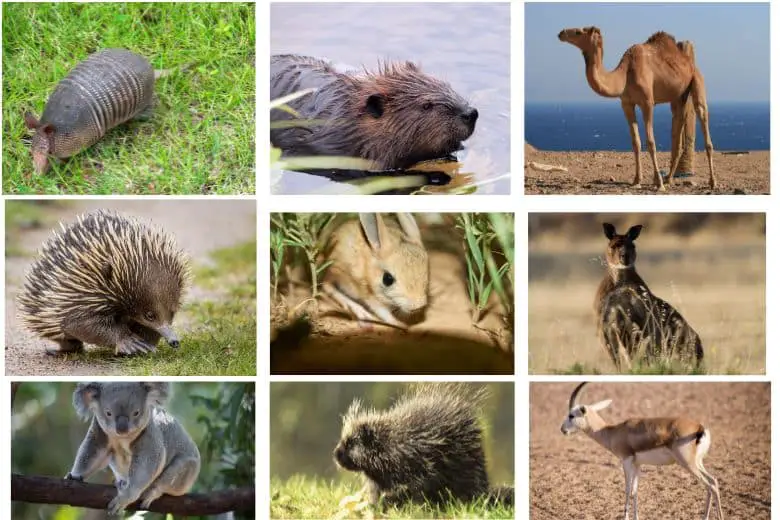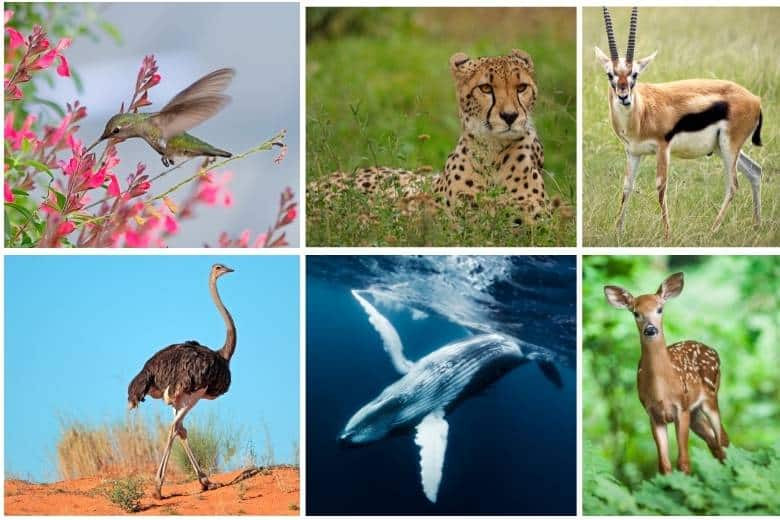Monkeys are fascinating and intelligent animals that are beloved by many people around the world. However, these playful primates face many threats in the wild, including the risk of predation by natural predators. Understanding the natural predators that prey on monkeys is an important part of conservation efforts aimed at protecting these animals and their habitats.
In this article, we’ll explore the different types of predators that hunt monkeys, the impact of natural predators on monkey populations, and the conservation strategies that can be used to help protect these animals from predation.
Types of Monkey Predators
Natural Predators
Several natural predators hunt monkeys in the wild, including big cats, snakes, birds of prey, canids, and crocodiles. These predators are biologically programmed to capture and consume prey and often possess specialized adaptations that aid them in their hunting efforts. For example, big cats like lions and leopards have powerful jaws, sharp teeth, and stealthy movements that allow them to ambush and overpower their prey. Similarly, snakes use their venomous bites and constricting abilities to immobilize their prey before consuming them whole.
Human Predators
Humans are also a significant threat to monkey populations, particularly in areas where hunting and poaching are prevalent. Many communities rely on hunting monkeys for bushmeat, which is a source of protein and income. Unfortunately, this practice can lead to overhunting and population declines, putting the survival of some monkey species at risk.
Eating Habits of Monkey Predators
Most monkey predators are either carnivores or omnivores, meaning that they consume primarily meat or a combination of meat and plant matter. Some predators, such as big cats and snakes, are obligate carnivores and rely solely on meat for their survival. Others, such as birds of prey and canids, are opportunistic hunters and will consume whatever prey is available to them.
Methods of Hunting and Eating Monkeys
Predators use various techniques to capture and consume monkeys, depending on their species and hunting strategies. Some predators, like leopards and eagles, use ambush tactics and surprise their prey to catch them off guard. Others, such as chimpanzees and hyenas, engage in cooperative hunting and work together to subdue larger or more challenging prey. Some predators even use tools, such as sticks or rocks, to help them catch and consume monkeys.
Impact of Predator-Prey Relationship
The relationship between predators and monkeys is a complex and essential component of many ecosystems. Predators help regulate the population size and distribution of their prey, which can have cascading effects on other species and the environment as a whole. Additionally, the presence of predators can influence the behavior and ecology of prey species, leading to adaptations and evolutionary changes over time.
Prevention and Conservation
To protect monkey populations and promote conservation efforts, several measures can be taken. Habitat protection, such as establishing national parks or reserves, can help ensure that monkey habitats remain intact and undisturbed. Additionally, combatting poaching and reducing the demand for bushmeat can help decrease the hunting pressure on monkey populations. Education and awareness programs can also play a crucial role in promoting conservation efforts by informing local communities about the importance of preserving natural resources and wildlife.
FAQs
What kind of monkeys do predators typically hunt?
Predators typically hunt smaller monkey species that are easier to catch and consume, such as marmosets and tamarins.
Are monkeys the only prey of these predators?
No, many of these predators will hunt other small mammals, birds, and reptiles in addition to monkeys.
Can monkeys defend themselves against predators?
Yes, monkeys have evolved various adaptations to help them evade and defend themselves against predators, such as sharp teeth and agile movements.
How can I help protect monkey populations?
You can help protect monkey populations by supporting conservation efforts, avoiding products made from endangered species, and spreading awareness about the importance of preserving wildlife.
Are there any laws protecting monkeys from hunting and poaching?
Yes, many countries have laws in place to protect endangered and threatened species, including monkeys, from hunting and poaching. However, enforcing these laws can be challenging, and illegal hunting and poaching remain significant threats to many monkey populations.
Conclusion
In conclusion, monkeys face a range of predators in the wild, both natural and human-made. These predators use various techniques to capture and consume monkeys, and their impact on the ecosystem can be significant. By understanding the predator-prey relationship and taking steps to protect monkey populations, we can help ensure the survival of these fascinating animals.


